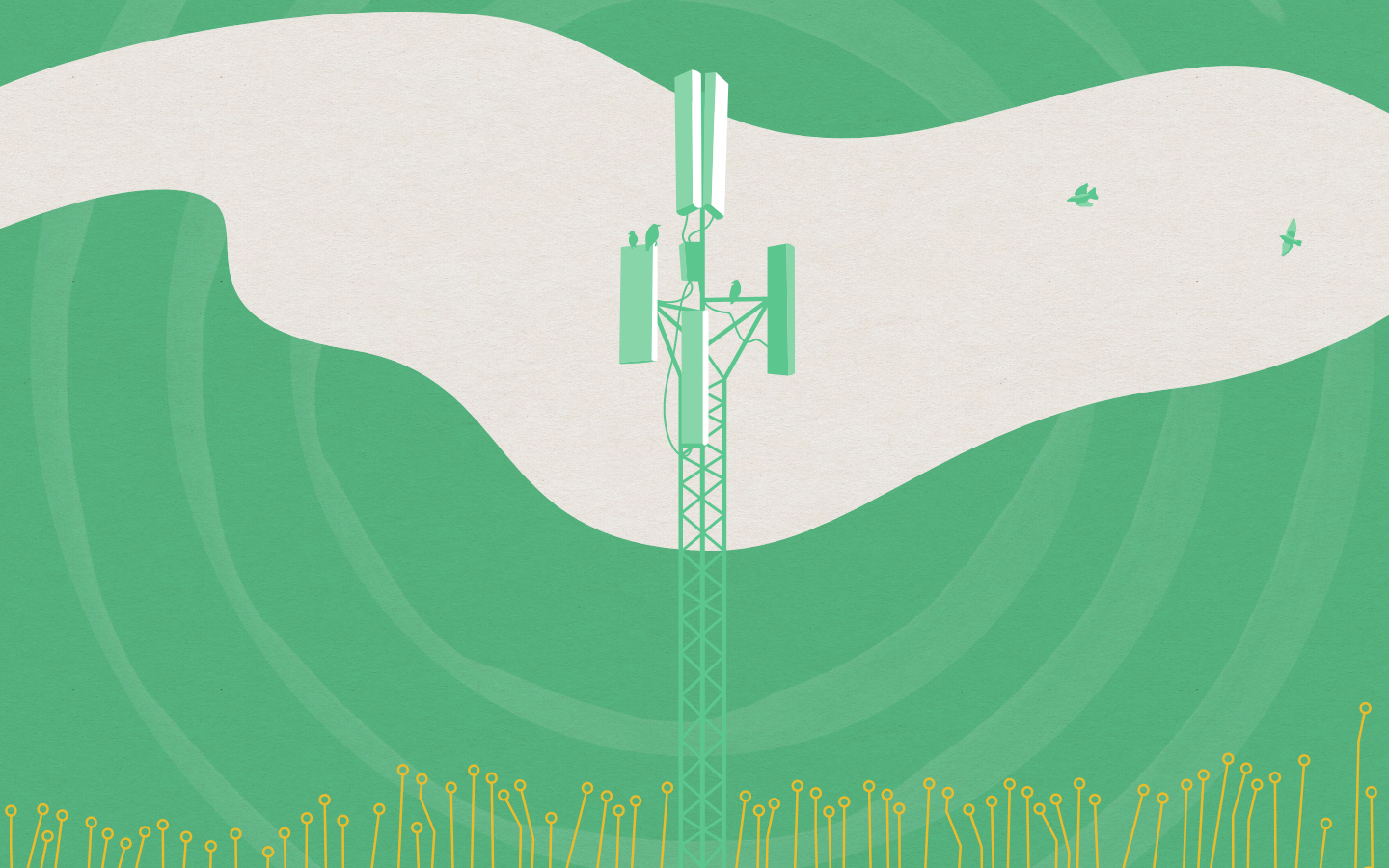Behind the Signal: Techno-Diplomacy and the Global Fight for Your Right to Connect

When we think about internet control, many people focus on issues like social media censorship or content moderation. However, a fundamental battleground for your right to connect lies deeper—in the invisible, behind-the-scenes decisions about who controls the infrastructure that makes the internet work. This is where techno-diplomacy plays a decisive role.
At the heart of techno-diplomacy is the global radio-frequency spectrum, a finite and shared natural resource that enables wireless communication. Managed internationally by the International Telecommunication Union Radiocommunication Sector (ITU-R), this spectrum is far from neutral. It’s shaped by geopolitical alliances, corporate lobbying, and legacy inequalities that civil society rarely sees. The decisions made there affect not just access to the internet but who gets to control the infrastructure that makes it possible.
What is Techno-Diplomacy, Really?
Techno-diplomacy refers to the international negotiations over technologies, standards, and policies that shape global communication systems. These discussions often happen under the guise of “technical neutrality”—yet behind this language lie powerful economic and strategic interests.
In forums like ITU-R, member states officially make decisions on spectrum allocation and telecommunication policies. However, large mobile telecom companies (such as Telefonica, Deutsche Telekom, Tim, and Ericsson), particularly through their member-state representatives, are constantly present in these meetings, pushing their agenda, even though the final decisions rest with the member states in this multilateral space. Meanwhile, smaller ISPs and community networks, which might offer more diverse and accessible technologies, and need unlicensed spectrum to operate, are often absent from these discussions.
This imbalance means that decisions about spectrum allocation or signal interference that directly impact how we access the internet are often shaped more by market consolidation than by public interest. Countries that can afford larger delegations, maintain a constant presence in meetings; in the same way, large telecom companies often see their interests reflected in global internet decisions, while those with fewer resources struggle to have their needs represented. Below are a couple of examples illustrating this dynamic:
Spectrum Policy: A Battle Over Control
Historically, exclusive licensing models have benefited large mobile telecom corporations by selling off spectrum through high-priced auctions. These auctions, while promising next-gen connectivity (e.g., 5G, and soon 6G), effectively block local ISPs, community networks, and alternative service providers from entering the market. This model limits innovation and competition, particularly in the Global South, where many communities lack affordable internet access.
On the other hand, unlicensed spectrum, which is used by technologies like Wi-Fi and community networks, has come under constant pressure from large mobile telecom industry eager to claim more bandwidth for private use. A key example is the 6GHz spectrum band dispute at the last World Radiocommunication Conference (WRC), where the interests of large corporations pushed for greater control over spectrum at the expense of public access.
LEO Satellites and the Illusion of Global Connectivity
In recent years, companies like SpaceX (Starlink) and Amazon (Project Kuiper) have launched or are planning to launch thousands of Low Earth Orbit (LEO) satellites, promising global internet coverage. These projects have been hailed by many as the solution to the digital divide, especially in remote areas. But the reality is a bit more complicated; in Iran, Starlink equipment was smuggled in to bypass internet shutdowns. While hailed by some as a free speech win, this situation sparked a a broader question: can foreign private companies beam internet into sovereign countries without authorization to operate in the area? Despite Iran’s formal complaints at the ITU, Starlink representatives claimed they couldn’t deactivate services regionally—though they’ve done exactly that elsewhere, including in parts of Africa and conflict zones in Ukraine.
For example, Starlink obtained the first authorization to operate in Brazil under President Bolsonaro’s government, without a proper technical analysis by the national regulator. Suddenly, it was providing services in the Amazon region, disregarding local demands for sustainable and community-driven alternatives that were consistently voiced by local communities. This created new social and geopolitical issues, along with economic dependencies. Starlink’s equipment was later found in the hands of illegal miners, raising serious concerns about the safety of indigenous people and the environment in the area.
Starlink’s selective service denials—whether pausing access over Crimea, South Africa or warning Ukraine of cutoffs unless certain mineral deals were met—clearly illustrate how connectivity can be used as a political instrument, rather than as neutral infrastructure. Because these decisions are made behind closed doors or in “purely technical spaces,” civil society remains sidelined or misinformed from the very debates that shape internet access.
How Civil Society Can Respond
It’s essential that we reframe the spectrum—the foundation of internet connectivity—as a public good. This requires advocating for shared spectrum models, challenging the “neutral technical decisions” that entrench monopolies, and pushing for more transparency in global forums.
Civil society must ensure that public-interest actors—including small ISPs and community networks—are involved in key discussions at regional bodies like CITEL (Inter-American Telecommunications Commission), APT (Asia-Pacific Telecommunity), ATU (African Telecommunication Union), and CEPT (European Conference of Postal and Telecommunications Administrations). These organizations decide which services (e.g., satellites, terrestrial mobile networks) will have access to the spectrum, and engaging in them might ensure a diverse and competitive internet landscape.
We must also demand greater transparency in internet network data, such as mobile service coverage, usage statistics, and service quality. This would help ensure that policy research isn’t driven by the interests of corporate lobbyists, but rather reflects the needs of local communities and public good.
Reclaiming the Internet Agenda: A Call to Action
The right to connect isn’t just about policies—it’s about the fundamental infrastructure that underpins the internet. This idea is not entirely new; in the pre-internet past, community radio activists like Radio Alice members in Italy, Mbanna kantako in the US and theorists like Mario Kaplún and Paulo Freire in Latin America, advocated for “free waves”, or media that was bidirectional and accessible to all, not just controlled by a few government-sanctioned actors.
Today, however, civil society has become increasingly distanced from the technical discussions that shape the internet. This is in part due to the complex commercial and geopolitical forces driving internet infrastructure decisions, which have sidelined the original ideals of inclusive and community-driven access. As we witness firsthand how the internet is increasingly used to harm democracy and civil rights, it’s clear that reclaiming this agenda is crucial.
This is not just about accessing the internet —it’s about participating in society, and exercising human rights. If we leave infrastructure diplomacy to tech giants and powerful states, the internet will reflect only their interests. But if we reclaim the agenda, there is still time to build a truly open and resilient internet for all.
Dr. Raquel Renno is Senior Digital Programme Officer at ARTICLE 19. This blogpost summarises the ‘tech dive’ she delivered to the members of the Public Interest Technology Group on 28 November 2024.
More recent news

Further and Safer: Reviving HF Radio in the Digital Age
Rhizomatica describes how it hacked an old technology, HF (or shortwave) radio and dragged it into the 21st century as a means to connect rural and low income populations. Read more

Behind the Signal: Techno-Diplomacy and the Global Fight for Your Right to Connect
Negotiations over technologies, standards and spectrum at the International Telecommunication Union Radiocommunication Sector (ITU-R) are fundamental for internet connectivity, but are often shaped more by market consolidation than by public interest. Read more

A Playbook for End-to-End Encrypted Messaging Interoperability
The future of messaging is encrypted, and it is also interoperable. Now that the EU’s Digital Markets Act has gone into effect, the technical means by which gatekeepers of end-to-end encrypted messaging (e2ee) platforms must interoperate have been defined. Read more